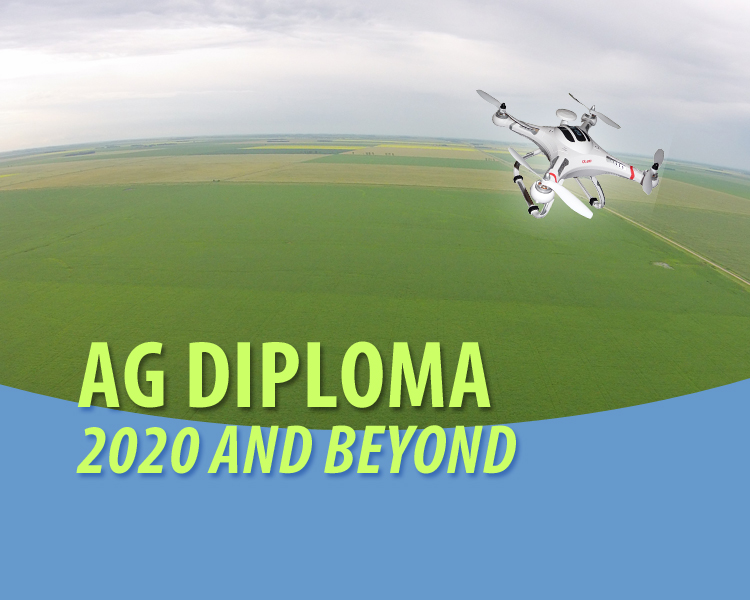
Diploma in Agriculture program adapts to respond to future opportunities
The School of Agriculture at the University of Manitoba is pleased to announce a redesign of its flagship Diploma in Agriculture academic program, which offers training for those seeking to manage a farm operation or pursue careers in the agricultural and value added sectors.
The two-year Diploma in Agriculture program has a long and rich tradition, dating back to 1906 as the first program offered by the Manitoba Agricultural College. Since its beginning more than a century ago, the program has changed dramatically, shifting its emphasis from technical training toward a broader education in the scientific principles that underlie modern farm production and agribusiness management practices. Graduates are eligible for professional membership in the Manitoba Institute of Agrologists as Technical Agrologists.
An intensive review began in January 2015 to ensure future Diploma in Agriculture graduates have the skills to serve and enhance the agri-food industry in Manitoba. Stakeholders were involved in the review, and an advisory committee made up of producers, industry members, graduates and academics helped guide the process. Through focus groups, interviews and surveys, the review identified learning outcomes that graduates of the program would require to meet the needs of the agricultural and food sector in 2020 and beyond.
“The feedback we gathered has helped us redesign the program to be responsive to the needs of and opportunities for agriculture, today and into the future,” said Michele Rogalsky, Director of the School of Agriculture. “The program has been modified to strengthen higher-level decision-making skills and to assess the impact of current agricultural issues at the farm and industry level.”
One course change – Precision Agriculture – Technological Tools for Decision Making will provide all students in the program with increased knowledge and skills in technology applications and capacity. A new course on Integrated Sustainable Agri-Food Systems will expand the focus from the farm gate to the consumer’s plate and incorporate sustainable agri-food system models. Students will also have a strengthened foundation in courses in agronomy, soil science and plant science.
Students will also be allowed more elective course options, providing them with more diversity in their course selection including the ability to take degree level courses. One new elective course entitled Exploring New Opportunities in Adding On-farm Value explores innovative approaches to production, processing and marketing.
Marg Rempel, Steinbach-area producer and member of the Diploma program advisory committee, says it was a privilege to participate in the review process and sees incredible potential for the future of agriculture in Manitoba. “Graduating students who have developed skills and attitudes of strength, adaptability, resilience and collaboration means that their participation at an individual level as well as at a sector level will serve all aspects of agriculture well. Respect for the many diverse options in food production is the basis for sustainability and innovation in agriculture. This is the exciting task of the University of Manitoba’s Diploma in Agriculture program,” said Rempel.
Brian Archibald graduated with a Diploma in Agriculture in 2017 and says the program has been critical to his future as an industry professional, providing him with the necessary technical skills and valuable network connections. “I believe the revisions to the program will even better prepare the next generation of students to join the agri-food sector and gives them credibility with employers and industry partners alike knowing that they possess the knowledge and ability to continuously learn, which are essential for success,” said Archibald.
“We are very grateful to our industry and alumni partners in helping us shape this new curriculum,” said Rogalsky. “It has been a privilege to tap into their knowledge and expertise, and we are confident that future graduates, and the Manitoba agri-food community, will benefit from the new program.”
The School will launch the program modifications in Fall 2018. Full details of the program changes can be reviewed at www.umanitoba.ca/afs/school/agdiploma2020.html.
For more information, please contact:
Michele Rogalsky, Director
School of Agriculture
Faculty of Agricultural and Food Sciences
University of Manitoba
Tel: 204-474-9262
Email: michele.rogalsky@umanitoba.ca






